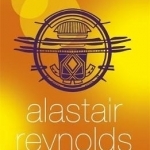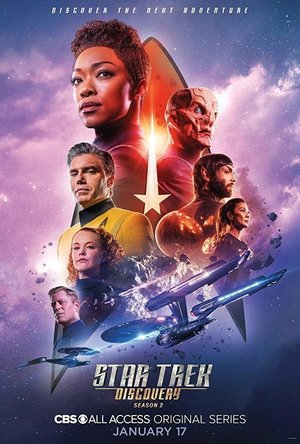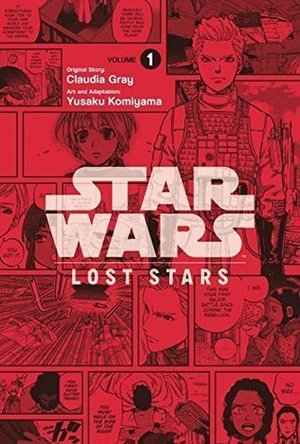
Star Wars: Lost Stars, Vol. 1 (Manga)
Claudia Gray and Yusaku Komiyama
Book
Seduced by the Galactic Empire's promises of unity and change, the planet's of the galaxy and the...
Goddess in the Stacks (553 KP) rated The Wrong Stars in Books
Aug 26, 2018 (Updated Aug 26, 2018)
First off, the diversity! Over the course of the story, we meet people who are, in no particular order, gay, bisexual, demisexual, asexual, transgender, and non-binary. The story is set 500 years after Earth sends out its first colony ships, and in that time, culture has evolved. Marriage is not common, but contractually-bound relationships exist. Promiscuity and non-monogamy aren't viewed any different than monogamy, and in the same way, the distinctions between gay, straight, and bi don't carry any negative connotations. It's not a complete utopia - it's still a capitalist society, and there is still scarcity - but socially, at least, it has definitely evolved a lot from the present!
Elena, one of our main characters, was a biologist sent out on one of the first colony ships. Stocked with seeds, crude replicators, and cryo-sleep pods, a small crew was sent out, in stasis, on a five-hundred year journey to a system with probable life-supporting planets. They were called Goldilocks ships, in the hope they'd find a planet that was "just right." What humanity didn't expect was that in the intervening five hundred years, they would make contact with an alien species and be given the means for true space travel via wormholes. Some of the ships arrived at their destinations to find human colonies already thriving on their target planets! Elena, however, found something quite different, and it's a very disconcerting difference. She is rescued by the motley crew of the White Raven, and they quickly get drawn into the mystery.
I really enjoyed the world-building and characterization in The Wrong Stars. The science of it made sense to me, but I'm not very versed in science, so I can't really say how realistic it is. It was at least pretty internally consistent. I'd like to learn more about how the AIs are created, though. Luckily, there is a sequel coming! The Dreaming Stars should be coming out this September, and I'm DEFINITELY going to read it.
If you like Dark Matter, Firefly, or Farscape, you should definitely read The Wrong Stars. There's a little bit of light romance threaded into the larger plot, and one fade-to-black sex scene. It's definitely not the focus of the book. There is some violence, but nothing incredibly graphic. I would put it at about the same maturity level as Star Trek.
You can find all my reviews at http://goddessinthestacks.com
Phil Leader (619 KP) rated On the Steel Breeze in Books
Nov 21, 2019
Taking up the story several years after Blue Remembered Earth the main (human) protagonist is Chiku Akinya, daughter of Sunday Akinya from the first book. She has cloned herself and the three Chikus pursue different fates but their stories inevitably interact with each other.even across light years of space.
One is lost in space, presumed dead. Another is on a colony ship heading to a planet that images have shown has a clearly alien structure on the surface. The third remains on Earth, presumably in safety.
As the colony ships near the destination planet they are riven by internal strife and politics just as Chiku finds that things are not as they seem. There are secrets both within the colony ship and with the planet itself, secrets that are bound to cause conflict when they are brought to light. On earth it is clear that some important information has been hidden and Chiku must risk her safe existence to uncover the truth, but at a high cost.
The book starts slowly, maybe a little too keen to establish who Chiku is and reinforce how the world she inhabits is different from ours. However once the story moves to the colony ships it moves along at a good pace with enough twists and surprises to keep the reader's interest. There is plenty of intrigue and it really is hard to tell where the story is going next.
We have the usual 'hard physics' at work as should be expected in a Reynolds book. Except for the hand wavium 'Chibesa physics' that powers the ships, the laws of physics are rigidly adhered to. Again we see how a battle across millions of miles of space could be achieved.
I found the ending to be satisfying (I have read reviews criticising it). It ties up the story of the earth based Chiku. The story for the colonists is clearly only beginning and the third book in the series is set up neatly in the epilogue, while at the same time providing closure on the fate of the colonists.
My only real criticism of the book (and it in no way detracted from it) was the cloning-and-memory-merging gimmick used for the Chiku clones. Although this neatly allowed the story to move between the colony ships and the solar system, I felt that this had been explored better (and with more justification) in Reynold's novel House Of Suns. Here it just seems to be a 'sci-fieqsue' way of allowing the main protagonists to communicate and empathise across the vast tracts of space and otherwise seemed superfluous given the complex set up.
Overall another excellent book from Reynolds, definitely up there with the best 'space opera' novels. I am looking forward to the third book immensely.
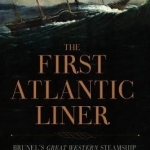
The First Atlantic Liner: Brunel's Great Western Steamship
Book
The Great Western is the least known of Isambard Kingdom Brunel's three ships, being overshadowed by...
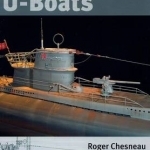
Type V11 U Boats
Book
The 'ShipCraft' series provides in-depth information about building and modifying model kits of...

German Naval Camouflage: v. I: 1939-41
Book
For half a century German warship camouflage has been something of a mystery for warship enthusiasts...
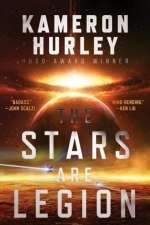
The Stars are Legion
Book
Set within a system of decaying world-ships travelling through deep space, this breakout novel of...
Science fiction
Gareth Michael Lewis (6 KP) rated Star Trek: Discovery in TV
Feb 26, 2018
To begin, this series IS Star Trek. It has the ships. It has the Federation. It has the USS Enterprise (mentioned and seen). So why all the fuss?
Well, firstly, we have the Klingons. They look nothing like their predecessors in any other show. Alright, in The Original Series (TOS) they looked like fake-tanned, mustachioed humans and then they had forehead ridges in The Motion Picture and Next Generation (TNG) and we got over that quickly enough (they even explained why the ridgless Klingons existed in Star Trek Enterprise). Why the hostility towards the new Klingons in STD? Is it because they took an iconic villian and remade them for a more modern audience? Changing the appearance of ships, costumes and make-up along the way? Apparently so. But what series hasn't updated their villains as technology allows them to? Doctor Who's TARDIS has changed appearance more than once as have the Daleks. Didn't Battlestar Galactica face similar issues with the rebooted series? Of course. But we Trekkies can be an unforgiving bunch. Move past the updates to ships, uniforms and even aliens and judge the show on its own merits.
That leads us to the next bit.
Network executives seem to think that a more modern audience needs something edgier to keep them interested. So STD contains bloody violence, torture, f-words, naked Klingon sex (I did not need to see Klingon, armour-plated boobs) and is clearly made for an "adult" audience. My introduction to Star Trek was TNG, and I went back to TOS because I loved it. Then onto DS9 and Voyager. Even Enterprise, which played with established canon like a child in a sandpit, felt like something I'd let my kids watch. STD is like Game of Thrones in space, just with less incest. My kids will not be allowed to see this until they are much, much older.
The show itself is very pretty to look at, acted capably by almost everyone who has screentime and has characters I grew to genuinely like, but the writing was lazy. We were promised a Federation/Klingon war then somehow missed the whole thing by the final episode. The final episode itself seemed like an exercise in "how to end a season quickly and in the least satisfying way possible".
I wanted to give this series a higher score, I really did. I moved it from 7 to 6 and back to 7 again and again until I stuck with 6 because, although it has moments of brilliance, these moments are telegraphed so far in advance of happening you just can't bring yourself to be surprised by any of it. Almost every plot twist is so obvious that the writers seem to be waiting for a pat on the back at how cleverly they revealed the twist to you rather than trying to genuinely amaze you. It had such potential, it really did. The opening credits are beautiful, the music perfect. The ships are great (I play Star Trek Online so updated ships don't faze me that much). The crew are awesome, with dynamics that shift wonderfully and made me want to see more. But... alas.
If you want to watch a Star Trek series that pushes sci-fi, political and societal boundaries then go back and watch TOS, TNG, DS9 or even Voyager. If you want to watch a "Star Trek" series that does all of that for a modern audience... watch The Orville.
David McK (3676 KP) rated Hornblower and the Hotspur in Books
Jan 30, 2019
As such, this takes in numerous incidences, including (but not limited to) shore landings, running battles with enemy ships, a (brief) sojourn at home in which he comes face-to-face with his baby son for the first time, blockade duties in and around the vicinity of Brest, and travels to even more foreign shores *phew*.
In other words, a wide cross-section of the duties of a Royal Naval officer instead of concentrating on any one incident on its own.
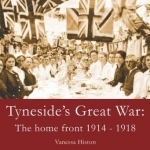
Tyneside's Great War: The Home Front 1914-1918
Book
For the first time in history, the Great War brought conflict right to the doorsteps of ordinary...

